Typically, a rim installation will cost you around $10 – $20 per wheel which means it will cost you between $40 and $80 in total. If you are getting a brand-new set of rims, however, you could be spending as much as $150 on the cheap and over $1,000 if you want something custom.
What Should I Look for When I Get New Rims Installed?First of all, you have to make sure you are picking the correct rims for your ride. A lot of people want to go with bigger rims because they look good, but this can cause issues. You are going to want to pick a rim with the same dimensions, but what are these dimensions?
DiameterIf you do not want to make any additional modifications to your vehicle you should stick with the same overall diameter. If you use a different overall diameter you will need to change your aspect ratio or else you run the risk of
damaging your transmission.
If you are getting new tires with your new rims, as is mostly the case, you could get lower-profile tires so that the overall diameter is maintained. Low-profile tires come with their own problems though, namely a higher level of vibration due to uneven road surfaces.
Low-profile tires are also going to cost more, in both upfront costs and maintenance. The best thing to do is to just keep the same, recommended wheel diameter.
WidthIt is important to remember that with all these dimensions have been calculated by the vehicle manufacturers to provide you with the best performance your vehicle can deliver. Some people want wider wheels for looks, but there are some serious issues with wider tires.
Firstly, the weight of your vehicle is distributed over a larger area. This sounds good, but in fact, it increases the risk of hydroplaning because there is less pressure per square inch between the tire and the road.
Secondly, because the wheel comes out further from the wheel bearing, the angle is changed. The change in angle will do damage to the wheel bearing over time, which will not only cost you more but can also cause a dangerous situation.
The change in angle will do damage to the wheel bearing over time, which will not only cost you more but can also cause a dangerous situation.
Offset is the term used to describe the location of the mounting surface in relation to the centerline of the wheel. Offset is important because it will also mess with your bearings and if you have an overly negative offset the wheel could start touching the chassis or other parts of the vehicle, especially the steering wheels.
BackspacingBackspacing and offset are similar to one another, however; backspacing takes wheel width into account as well. It is measured from the inside lip of the wheel to the mounting surface. Backspacing is important to keep the correct amount of clearance between the inside sidewall and the rest of the vehicle, similar to negative offset.
Bolt PatternThe bolt pattern is more than just counting the number of bolts for your wheel.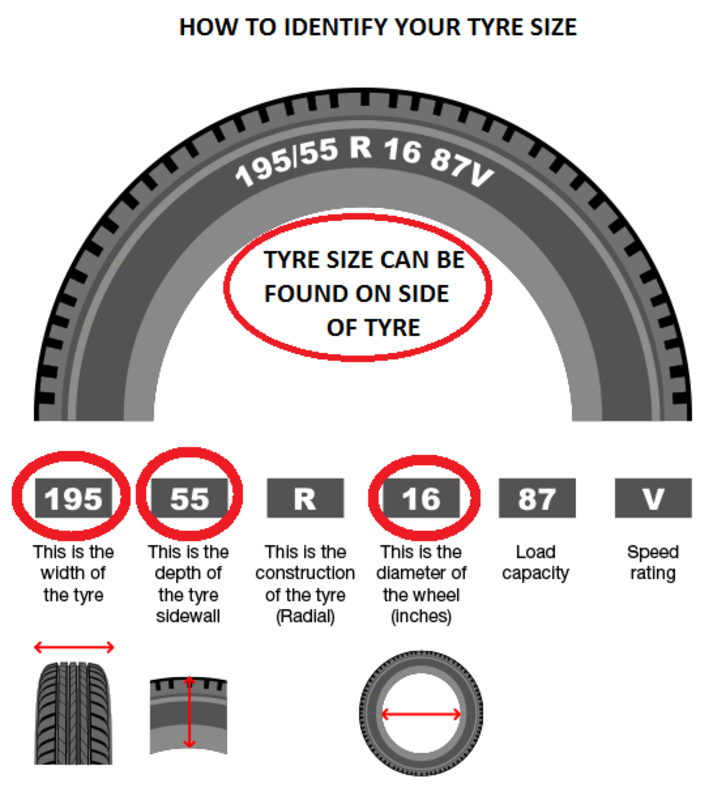 You also need to know what the spacing is. Bolt pattern is determined by two numbers, “5-on-5” for example. The first number is the number of bolts or lugs, the second number is the diameter in inches of the bolt circle.
You also need to know what the spacing is. Bolt pattern is determined by two numbers, “5-on-5” for example. The first number is the number of bolts or lugs, the second number is the diameter in inches of the bolt circle.
The bolt circle is the circle you can make by connecting the bolts. Alternatively, you could measure from the center of one bolt to the center of the wheel hub to find the radius. Then just multiply the radius by two to find the diameter.
Load RatingThe load rating is straightforward, it is the amount of weight the wheel can carry. The more bolts there are and the bigger the bolt circle is, the more load a wheel can take.
This is why some larger offroad vehicles will have many bolts in a large circle compared to a small city compact. Furthermore, the type of material the rim is made of will also impact the load rating.
Center BoreCenter bore is a critical element when you are using hub-centric wheels, and for fitting over full-floating axles, and locking hubs.
Bead seat is likely only going to matter to you if you like off-roading with extremely low tire pressures. The bead seat keeps the tire on the wheel, the higher and wider the bead seat, the lower you can go, pressure-wise.
Some serious off-roaders use beadlocking wheels. This adds a mechanical clamping bead that holds the tire on the rim. Allowing the tire to stay on the wheel even if the pressure reaches zero. If off-roading interests you, Goodyear offers some of the best off-road tires.
What Are the Cost Factors When Looking for New Rims?As long as you stick to the recommended dimensions for your vehicle the main cost factors are going to be brand and material. Additionally, you probably want to get some new tires with your new rims, in which case, tires will also affect the overall cost. As far as tires and costs go, remember you get what you pay for, so try to avoid the super cheap tires.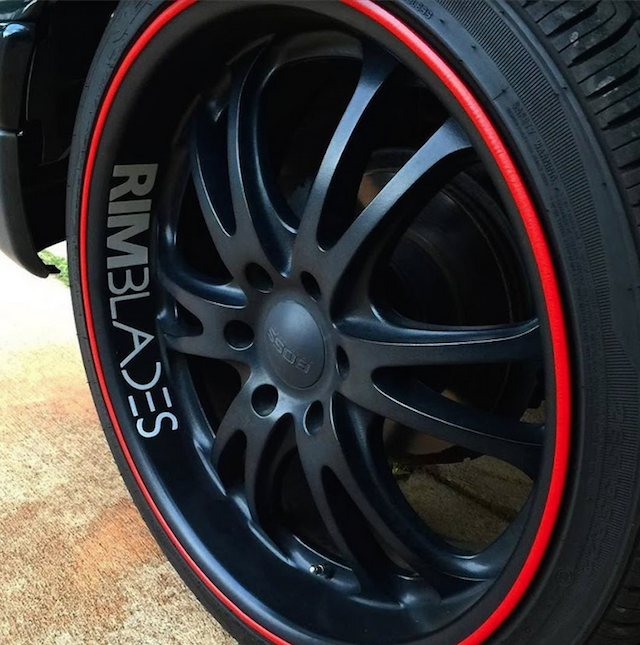
As I mentioned, depending on the type of material the rims are made of will determine the cost of the rim. The cheapest set of rims can go for as little as $90 up to and above $1,000. Below is a list of cheaper rims of different materials.
America’s Tire often has good rims at affordable prices, just make sure all your dimensions are accurate.
ConclusionSimply fitting your tires to rims is quite cheap; $10-$20, I got mine fitted for 13 bucks. Where cost becomes a real factor is if you buy a new set of rim or tires. Furthermore, it is important that you fit the right size equipment on your vehicle.
Tire rims are the metallic backbone of a car's tire. They cause a frictional effect on the car's tire and carry all the weight. Because of this, when anything goes wrong with them, they need to be replaced as soon as possible. If you are wondering how much it would cost to get a new tire rim, we checked with experts, and here's what they said.
They cause a frictional effect on the car's tire and carry all the weight. Because of this, when anything goes wrong with them, they need to be replaced as soon as possible. If you are wondering how much it would cost to get a new tire rim, we checked with experts, and here's what they said.
The rate most shops charge for installing tire rims is about $200 to $500 for a single tire. However, the type of car, model, and level of technician expertise will still play a role in determining the price.
A few other details are still important in installing a tire rim. So hang on and keep reading to find out all you need to know about replacing tire rims.
Before you continue reading, let us say we hope you find the links here useful. If you purchase something through a link on this page, we may get a commission, so thank you!
Rims are the powerhouse of a car's tire. They are an essential component of a wheel. A tire with no rim cannot move a vehicle. The most important part of a tire rim is the outboard face or the "spider" that shows the design. Many people tend to choose the wheel of their car based on design, and the outboard face is seen first.
The most important part of a tire rim is the outboard face or the "spider" that shows the design. Many people tend to choose the wheel of their car based on design, and the outboard face is seen first.
Other parts you can always look out for in your car rims are the bolt circle, center bore, spokes, valve stem, plate, etc.
All these parts have their importance and use. Here are some of the uses of a rim:
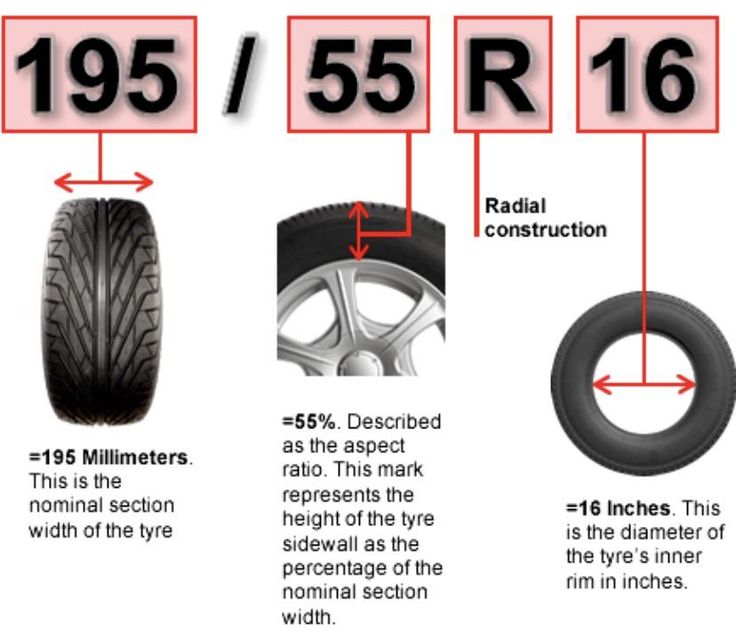 So, they contribute to the safety and performance of your cars.
So, they contribute to the safety and performance of your cars.Several types of rims are used for car tires, and it is recommended to identify which kind of car rim you are planning to use. Here are a few types of rims:
Steel rims are made with steel material. They are the most common types of rims and are typically cheaper. Rims made with steel are mainly resistant to corrosion because it takes time to react with oxygen.
The setbacks of steel rims are their rugged look and enormous weight. Though they are popular, many car owners prefer not to use them, but their cheap cost might be appealing, plus they are strong too.
An alloy is a combination of one or more metals. Alloy rims are made of aluminum and magnesium. They are as dense as the steel rims but do not carry as much weight. They have specified styles and cutouts to add exclusive features.
If you are looking for a rim that is smooth and pleasant to the eye, chrome rims might be the best.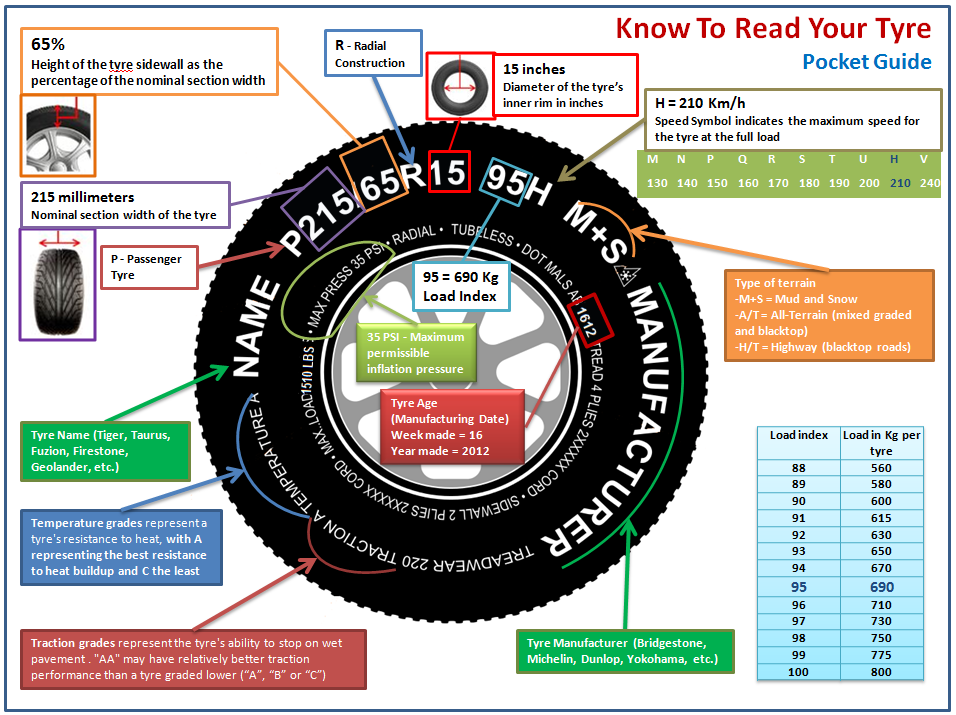 However, they are not as durable as other kinds of wheels.
However, they are not as durable as other kinds of wheels.
These are rims that spin as the car moves. They don't just follow the tire as it revolves; they spin faster, which can be intriguing to onlookers as they add to aesthetics and draw attention. Just like chrome rims, they are not as durable.
Installing tire rims is based on the type of car, the area, marginal utility, and the auto shop. The technician who would install your tire rims would consider all these factors. You will also be charged based on other wheel or tire-related work carried out during the replacement.
Besides, the prices might differ after considering all these factors. However, there are ranges of prices you can expect to spend for this installation.
$200 to $500 is the most likely cost range of rims installation. Depending on the location, others might take as low as $40 to $60 to install a tire rim.
New tires don't come with rims. So, you are typically buying a rim alone. However, if you are going for a wheel package, it will contain the main tire and rim.
So, you are typically buying a rim alone. However, if you are going for a wheel package, it will contain the main tire and rim.
When purchasing any new tire, you should not expect the rim with it. Instead, you can still expect the tire to come with new valve stems, tire mounting, etc. This means you would have to buy the tire or rim separately.
No, wheels and rims are different. Most people often use these two words and tires interchangeably and incorrectly. Here is a brief explanation of how they differ.
The wheel is the circular device that rotates around the axle. They get a signal from the engine and start rotating for the car to move. A car wheel is one of the most important parts of a car. The wheel is what propels the car, and it is rotated by the propeller.
The hubcap is what covers the center of the wheel, and it's usually made from metal. The tire is what covers the outside of the rim, and it's usually made from rubber or some other type of material that can be used for traction.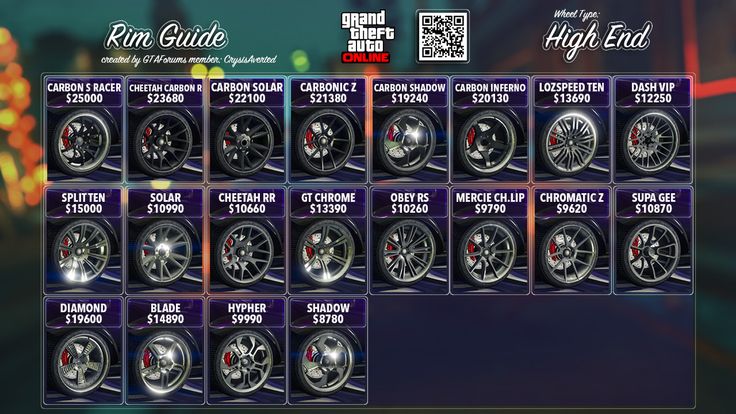
The wheel consists of several parts, including the rim, the outer part that holds onto the tire, and the hub, which is the center part of the wheel meant to withstand the shock from the ground.
A rim is the outer part of the wheel, which is responsible for holding the tire in place. The rim is an integral part of a vehicle because it helps hold the tire in place and helps to protect it from damage.
It also provides protection for other parts that are located under the wheel, such as brake drums, rotors, and bearings. The car rim is made up of steel or aluminum and has a rubber sealant around it.
Every car part has its estimated lifespan, so even rims wear out. Their functioning ability deteriorates over the years, and they tend to reduce quality and performance. Making them more dangerous to use.
Rims last up to 4-5 years. However, this is just an estimation. After buying it, managing and maintaining your rim would contribute to its lifespan. This will determine how long your wheel will last.
After buying it, managing and maintaining your rim would contribute to its lifespan. This will determine how long your wheel will last.
Looking at the dense nature of rims and the fact that they are made of metals, they are sturdy as they carry the weight of the car as you drive. Even if rim management is poor, you can still expect it to work for up to four years.
Here are a few signs that your rim is reaching its endpoint:
It's not possible to drive a car without rims. The wheel, however, is capable of rotating without the rim. Meanwhile, the rim is the only strong connection it can have with the tire.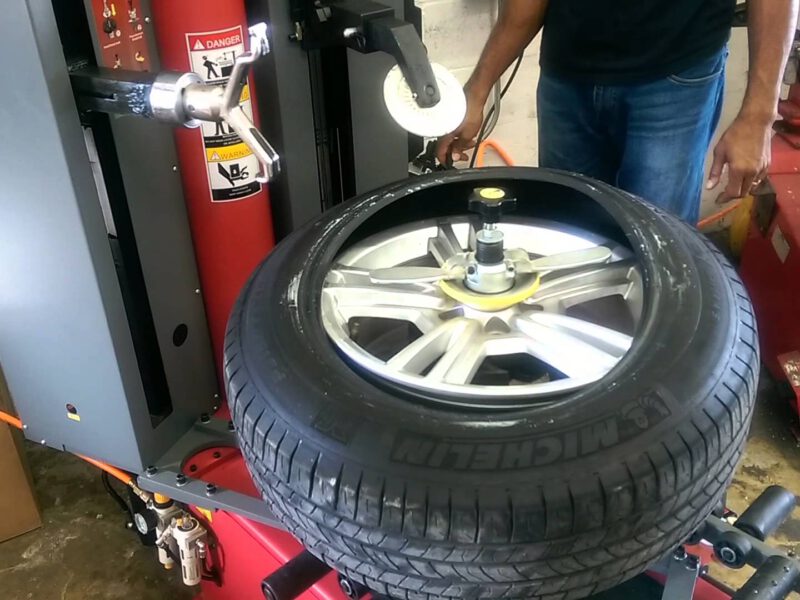 Hence, the rotating part of the wheel, tire, and the whole car would not be able to move.
Hence, the rotating part of the wheel, tire, and the whole car would not be able to move.
Driving on a bent rim, though risky, is possible. Although the side effect might be felt on your tire, you can still drive with a damaged rim. It is hazardous to drive on a bent rim. You might notice that your car's steering becomes stiff or more challenging to control.
This leaves you open to unanticipated accidents. So, it would be safer if you didn't drive on bent wheels. If you find yourself in an emergency, you should only drive a car with bent wheels for a very short distance. To guarantee security, you should also ensure the road is not crowded with passengers (both pedestrians and vehicles).
The car rim is an essential part of the car. They are essential for securing the weight of a vehicle and eliminating a bit of frictional force. Rims also serve as an anesthetic for cars. Unfortunately, they wear out with time. Hence, they need to be changed as soon as you notice a defect.
Hence, they need to be changed as soon as you notice a defect.
For more articles on rims, read these engaging articles:
Can You Put Wider Tires on Stock Rims?
Scrapping Noise From Wheels While Driving - What Does This Mean?
Is it time to switch from winter to summer tires? Come to our car service to change tires by prior online appointment.
Shesteryonka car services are equipped with modern Italian balancing equipment RAVAGLIOLIM and a tire changer CORCHI , which allows tire fitting for wheels ranging in size from 12 "to 30", including low-profile tires and Run Flat tires.
In addition to tire fitting and wheel balancing, you will receive high-quality services for all types of repairs, including puncture and side cut repair, as well as washing and cleaning wheels. Service centers "Shesterenka" have the status of certified services that have the right to perform tire fitting and wheel balancing.
| Name of work | Cost of work | |||||||
| R12-14 | R15 | R16 | R17-18 | R19+ comm. transport | ||||
| light | implemented | easy | implemented | easy | off-road | |||
| Wheel - remove/attach | 90 | 100 | 120 | 110 | 150 | 140 | 170 | 170 |
| Wheel - balancing | 90 | 100 | 120 | 110 | 150 | 140 | 170 | 170 |
| Wheel assembly | 80 | 90 | 100 | 90 | 130 | 120 | 130 | 150 |
| Wheel - removal | 80 | 90 | 100 | 90 | 130 | 120 | 130 | 150 |
| Wash wheel | 50 | 50 | 50 | 50 | 70 | 70 | 70 | 70 |
| Wheel - inflation | 25 | 25 | 25 | 25 | 25 | 25 | 25 | 25 |
| Chamber - repair | 50 | 50 | 50 | 50 | 50 | - | - | - |
One wheel conversion (excl.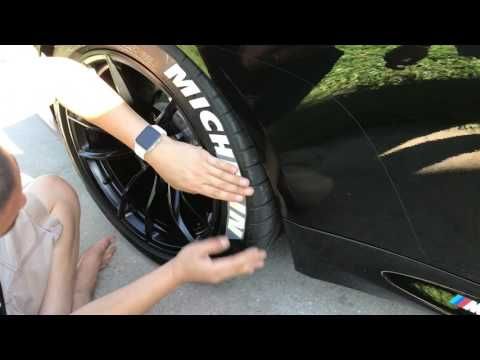 freight cost) freight cost) | 340 | 380 | 440 | 400 | 560 | 520 | 600 | 640 |
| 4 / 6 wheel conversion (without cost of freight) | 1360 | 1520 | 1760 | 1600 | 2240 | 2080 | 2400 | 2560/3840 |
| Tire - repair (harness installation) | 150 | 150 | 150 | 150 | 150 | 150 | 150 | 150 |
| Tire - repair (mushroom installation) | 150 | 150 | 150 | 150 | 150 | 150 | 150 | 150 |
| Tire - repair (installation of cord patch) | 250 | 250 | 250 | 250 | 250 | 250 | 250 | 250 |
| Tire - repair (side cut up to 3 cm) | 250 | 250 | 250 | 250 | 250 | 300 | 300 | 300 |
| Seat - cleaning | 25 | 25 | 25 | 25 | 25 | 50 | 50 | 50 |
| Seat - sealing | 40 | 40 | 40 | 40 | 40 | 60 | 60 | 60 |
| Disc check (balance) | 50 | 50 | 50 | 50 | 50 | 50 | 50 | 50 |
| Copper grease treatment of the hub (1 wheel) | 50 | 50 | 50 | 50 | 50 | 50 | 50 | 50 |
| Installing a non-return valve | 25 | 25 | 25 | 25 | 25 | 25 | 25 | 25 |
| Pressure sensor installation | 200 | 200 | 200 | 200 | 200 | 200 | 200 | 200 |
Please note that the price is indicated in rubles and is valid at the time of publication. You can get more complete information by contacting the managers of the Shesteryonka service centers.
You can get more complete information by contacting the managers of the Shesteryonka service centers.
Certificates of Shesterenka service centers
Copyright © 2006 — 2023 "Gear"
Privacy policy
All rights reserved.
All logos and trademarks displayed on the site are the property of their respective owners.
| Designation | R13 | R14 | R15 | R16 | R17 | R18 | R19 | R20 | R20+ |
|---|---|---|---|---|---|---|---|---|---|
| Price for 1 wheel | 300 | 350 | 400 | 425 | 475 | 550 | 650 | 700 | 800 |
| Price for 4 wheels | 1200 | 1400 | 1600 | 1700 | 1900 | 2200 | 2600 | 2800 | 3200 |
| Removal / installation | 100 | 100 | 100 | 100 | 125 | 150 | 150 | 180 | 180 |
| Tire service | 80 | 100 | 120 | 140 | 150 | 180 | 260 | 250 | 300 |
| Balancing | 120 | 150 | 180 | 190 | 200 | 220 | 260 | 250 | 300 |
